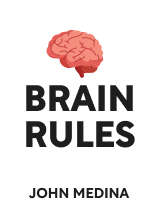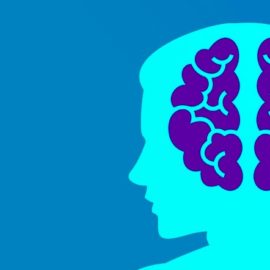

This article is an excerpt from the Shortform book guide to "Brain Rules" by John Medina. Shortform has the world's best summaries and analyses of books you should be reading.
Like this article? Sign up for a free trial here .
How does music affect the brain? What are the benefits of music’s impact on the brain?
In his book Brain Rules, Dr. John Medina theorizes that listening to music can affect your hormones, cognition, and mental health. Medina believes that music can go so far as to improve your social and language skills.
Let’s take a detailed look at how music affects the brain.
You’re Wired to Respond to Music
How music affects the brain is an intriguing question among researchers and scientists. Medina argues that playing and listening to music can notably improve cognition.
Medina discusses the numerous cognitive benefits of music, how music can affect the brain by creating hormonal changes that lead to shifts in mood, and the positive effects of music therapy.
The Cognitive Benefits of Music
Medina describes several areas of cognitive function that may be positively affected by participating in or listening to music.
1. Music leads to improved auditory skills. Medina cites several studies noting that musicians score higher on tests involving identifying subtle differences between sounds—including in speech.
(Shortform note: A recent study shows that piano lessons help children to differentiate between pitches, an important part of language processing.)
2. Music leads to improved language skills. Studies show that children who study music see improvements in language skills, both spoken and written. At 10 years old, children who have been practicing musical instruments for at least three years often see improvements in their vocabulary.
(Shortform note: Since music helps language processing, it also helps children learn how to read and learn language. Studies show that music lessons may even be more effective than additional reading lessons.)
3. Music leads to improved social skills. Infants exhibit improved social skills when participating in music. Medina cites a study where infants in a parent/child music class, involving tasks like playing with instruments, developed strong social skills such as increased smiling, laughing, and waving to others. Their stress levels were also lower than infants who did not participate in this class.
(Shortform note: Studies show that, for children with poor social skills, taking group music lessons improves prosocial behaviors like sharing and helping others. Children in these lessons also show more positive attitudes toward their peers.)
4. Music leads to improved emotional skills. According to Medina, studies show that children who played musical games during school have increased empathy for others, as opposed to children who played non-musical games or no games at all. Practiced musicians are also better at detecting emotion in others’ voices.
(Shortform note: Research shows that music education helps children to recognize emotions in images and texts, and can help children to express their emotions.)
Why Music Affects the Brain
Medina cites several reasons why and how music affects the brain, and boosting cognition.
Music improves our speech skills because music and speech share regions of the brain: The brain needs a strong sense of rhythm and pitch to understand both music and speech. As a result, playing or listening to music affects the brain through improving language skills.
(Shortform note: Some researchers believe that, because of its shared neural pathways with language processing, studying music may be more important for verbal communication than studying phonics. Since music training can help language processing so much, music training may help prevent literacy and language disorders in children.)
Music improves our emotional and social skills because it increases the production of hormones that increase pleasure, lower stress, and stimulate social bonds. Collaborative musical performance, like performing with a band or a choir, also encourages social skills because it requires cooperation and nonverbal communication.
(Shortform note: Research shows that listening to or participating in music stimulates the areas of our brain that govern social engagement, even if we do it alone. This is because music releases endorphins in the brain, pleasurable hormones that are also released when we socialize with others. So while engaging musically with others is a better way to improve social skills, participating in music alone is still helpful.)
Using Music as Therapy
Another way music affects the brain is by making you happy. Because of the benefits of music, particularly its ability to improve your mood by stimulating hormones, medical professionals often use music as a form of therapy. In music therapy, music is played to patients to improve their recovery from physical, mental, or emotional injury. Medina notes that music therapy can help patients who have experienced injuries or traumas that affect cognitive functions, such as speech, memory, and focus.

———End of Preview———
Like what you just read? Read the rest of the world's best book summary and analysis of John Medina's "Brain Rules" at Shortform .
Here's what you'll find in our full Brain Rules summary :
- An explanation of how the brain works in a simple and accessible way
- The 12 rules that help fulfill the core functions of the brain
- How to improve your thinking and learning abilities






